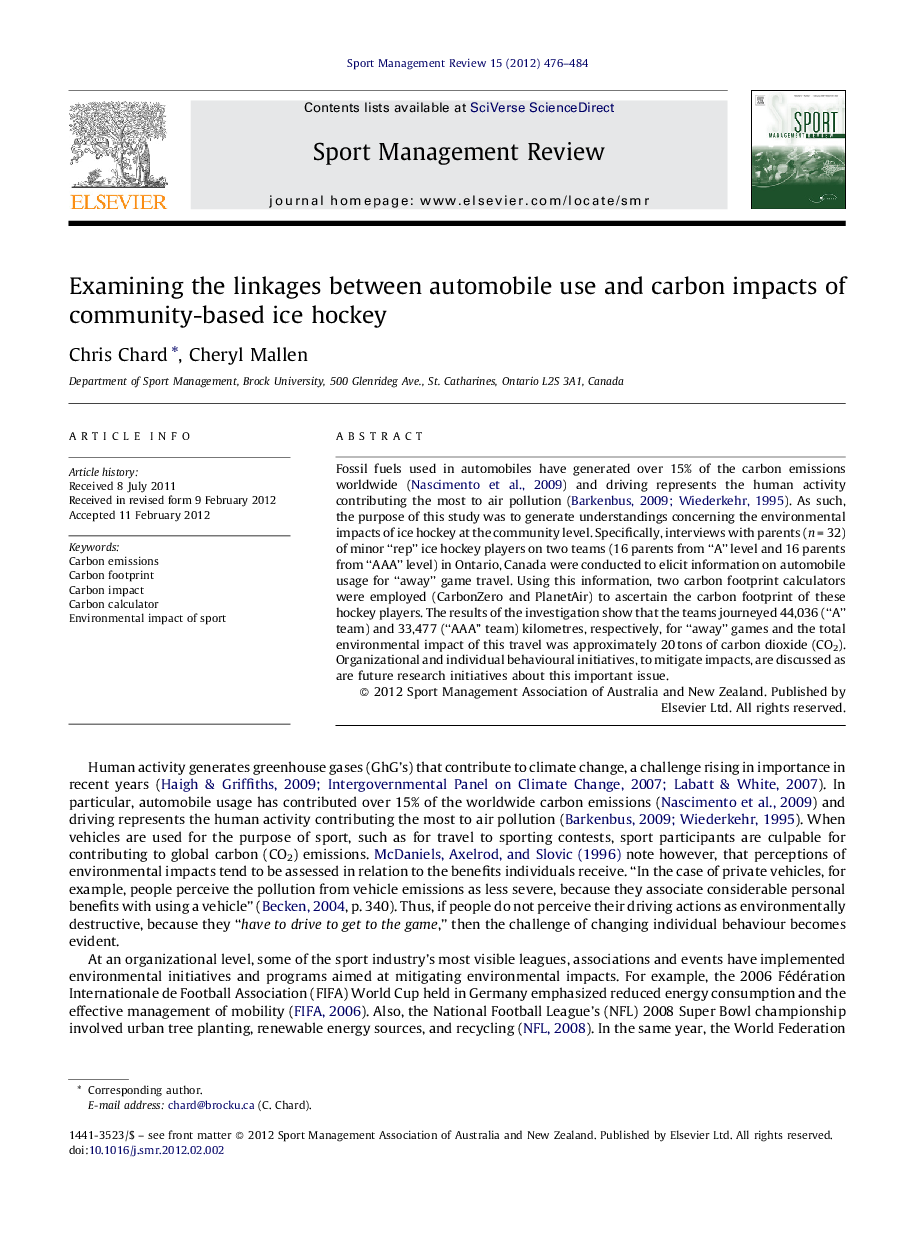| Article ID | Journal | Published Year | Pages | File Type |
|---|---|---|---|---|
| 141109 | Sport Management Review | 2012 | 9 Pages |
Fossil fuels used in automobiles have generated over 15% of the carbon emissions worldwide (Nascimento et al., 2009) and driving represents the human activity contributing the most to air pollution (Barkenbus, 2009 and Wiederkehr, 1995). As such, the purpose of this study was to generate understandings concerning the environmental impacts of ice hockey at the community level. Specifically, interviews with parents (n = 32) of minor “rep” ice hockey players on two teams (16 parents from “A” level and 16 parents from “AAA” level) in Ontario, Canada were conducted to elicit information on automobile usage for “away” game travel. Using this information, two carbon footprint calculators were employed (CarbonZero and PlanetAir) to ascertain the carbon footprint of these hockey players. The results of the investigation show that the teams journeyed 44,036 (“A” team) and 33,477 (“AAA” team) kilometres, respectively, for “away” games and the total environmental impact of this travel was approximately 20 tons of carbon dioxide (CO2). Organizational and individual behavioural initiatives, to mitigate impacts, are discussed as are future research initiatives about this important issue.
► We consider the carbon impact of automobile usage for two minor ice hockey teams in Ontario. ► Carbon calculators are used to establish benchmarks for carbon footprints. ► Awareness of carbon footprints can spur pro-environmental behaviours and actions. ► Individuals and sport managers are called to reduce carbon footprints.
